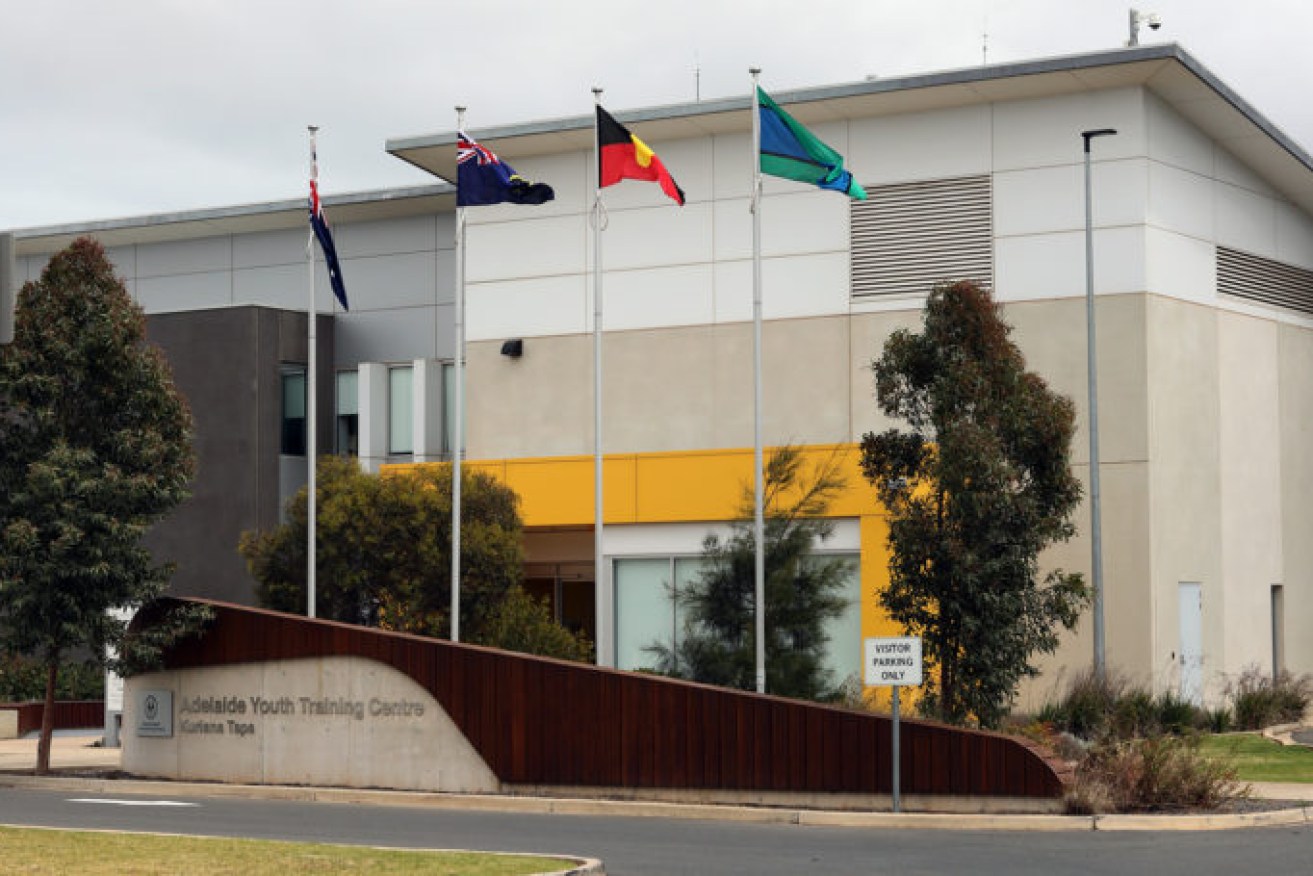‘Limited evidence’ to support controversial SA youth drug program
South Australian children in youth detention will likely be the first in the country to be forced against their will to receive treatment for drug dependency, despite the State Government conceding there is “limited evidence” that the controversial program will work.

Kurlana Tapa youth detention centre at Cavan. Photo: Tony Lewis/InDaily
The new Youth Treatment Orders program, which has been widely criticised by key child advocates including the state’s Commissioner for Children and Young People and Youth Training Centre visitor, was a Marshall Government election promise, but despite legislation passing parliament last November, the program is yet to be enforced.
The laws give the Youth Court the power to request that a drug-dependent young person attends treatment.
If a young person fails to follow court instructions, the Youth Court would have the power to detain them for up to 12 months for mandatory treatment.
A draft model of care up for public consultation states that children detained at the Kurlana Tapa Youth Justice Centre would be the first in the state to be subjected to mandatory drug treatment.
The Government proposes to then review the effectiveness of the program before rolling it out to the broader community.
“The changes recognise the importance of intervening effectively to address substance abuse before children reach adulthood,” the draft model of care states.
“The changes offer parents and others with a proper interest in the life of the child an additional option when the child has refused to seek help voluntarily, may be a danger to themselves or others, and no other appropriate and less restrictive means is available.”
Health Minister Stephen Wade has previously said that children would only be detained as a measure of last resort.
He also said that he expected most orders would be “much shorter” than 12 months,
According to the State Government, the Youth Treatment Orders program is “the first of its kind in Australia” and applies “evidence-informed drug treatment principles and practice”.
But the draft model of care states: “there is limited evidence available to support mandatory drug treatment for children”.
There is also no indication of how much the program would cost, or where children who are not already detained under criminal orders would be accommodated to receive mandatory drug treatment.
Commissioner for Children and Young People Helen Connolly told InDaily that “despite the fact that the Government is saying this will be a service of last resort and only used in extreme circumstances, it’s still problematic”.
“I don’t think it’s going to be easy to determine what’s in the best interests for children given that’s going to be determined in the court,” she said.
“The question for me is why isn’t it offered voluntarily?
“It just seems to me that people in the community – parents in particular – had legitimate concerns that said ‘we’re desperate for support and we can’t find anyone to help our kids to get over their drug issues’ and somehow we’ve ended up now with this solution which seems quite removed from the original problem.
“We’re now asking parents who are that desperate to seek to have their children detained and what we know… is that detention is not the place to get good outcomes for kids.”
Connolly said there was still no understanding of where children would be detained to receive treatment if they weren’t already detained in youth prison.
“We don’t have other facilities – Kurlana Tapa is the only place to detain children in the state,” she said.
“If there is going to be a mandatory model, then it should be in a health facility.”
She described the Youth Treatment Orders program as “tough love”.
“Parents are desperate – they might be thinking they’re doing the right thing by taking this court approach, but sometimes the right thing in the short-term might not be in the long-term interests of them, their children or their relationships with each other,” she said.
“Any solution that really does involve us going to a legal response is going to be problematic.”
Connolly also raised concerns about how culturally-appropriate the program would be, given Aboriginal children can, on any given day, make up half the state’s population in youth detention.
South Australia’s youth justice watchdog – Youth Training Centre Visitor Penny Wright – wrote in feedback to the Government that it was “unclear” how a therapeutic drug treatment program would work at Kurlana Tapa, given the detention facility is “not a therapeutic environment”.
“Currently, most… staff are not trained across multiple necessary discipline areas, let alone in potentially new drug rehabilitation competencies within a mandatory program,” she wrote.
The Aboriginal Health Council of SA, the SA Network of Drug and Alcohol Services and the Youth Affairs Council of SA, have also raised concerns about the program.
In a statement to InDaily, Wade said “phase 1” of the Youth Treatment Orders program would only apply to children detained in youth detention “to protect the health and wellbeing of some of our most vulnerable children”.
“The draft Model of Care for Phase 1 of Youth Treatment orders is currently out for consultation, with the consultation period expected to finish shortly,” he said.
“Following this, feedback will be collated and the Model of Care for Phase 1 will be finalised.”
The Youth Treatment Orders legislation received bipartisan support in the Parliament.




